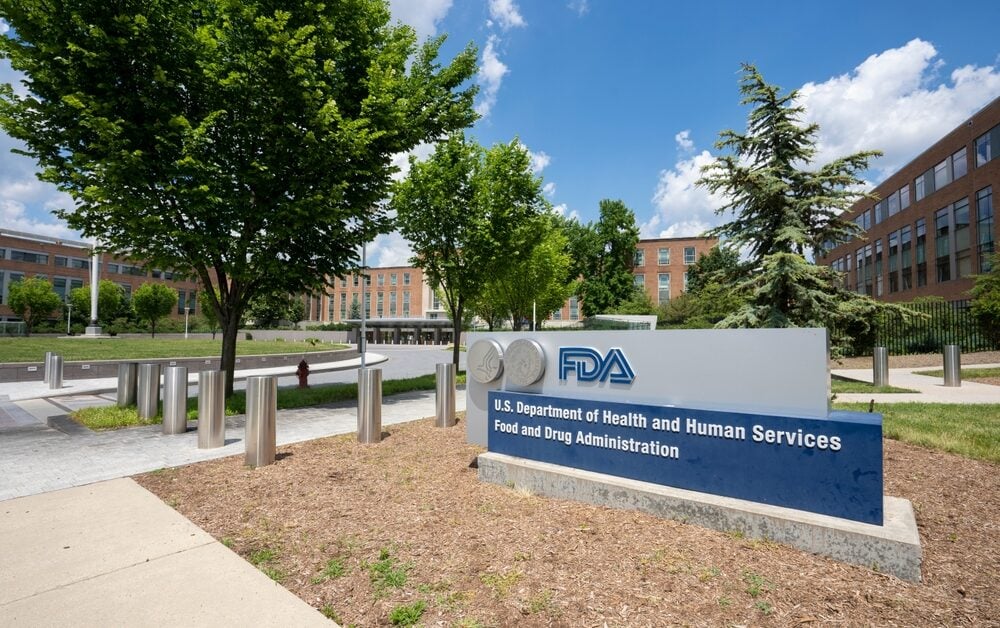Newsletter Signup - Under Article / In Page
"*" indicates required fields
UCB has announced RYSTIGGO (rozanolixizumab-noli) has been approved by the U.S. Food and Drug Administration (FDA) for the treatment of generalized myasthenia gravis (gMG) in adult patients who are anti-acetylcholine receptor (AchR) or anti-muscle-specific tyrosine kinase (MuSK) antibody positive.
Rozanolixizumab-noli injection for subcutaneous infusion is a humanized IgG4 monoclonal antibody that binds to the neonatal Fc receptor (FcRN), resulting in the reduction of circulating IgG.
It is the only FDA-approved treatment in adults for both anti-AChR and anti-MuSK antibody-positive gMG, the two most common subtypes of gMG.
About generalized myasthenia gravis
gMG is a rare disease with a global prevalence of 100 to 350 cases per every 1 million people. People living with gMG can experience a variety of symptoms, including severe muscular weakness that can result in life-threatening weakness of the muscles of respiration, double vision, drooping eyelids, and difficulty swallowing, chewing and talking.
In gMG, pathogenic autoantibodies can impair synaptic transmission at the neuromuscular junction (NMJ) by targeting specific proteins on the post-synaptic membrane. This disrupts the ability of the nerves to stimulate the muscle and results in a weaker contraction. gMG can occur in any race, gender or age.
“gMG can cause unpredictable fluctuations in severity and frequency of symptoms, which are often debilitating and can substantially impact the lives of patients. People living with gMG often face treatment options that are broad-acting, and that have traditionally only offered symptomatic relief,” said Vera Bril, Professor of Medicine (Neurology), University of Toronto, Director of the Neuromuscular Section, Division of Neurology, University of Toronto and University Health Network, Toronto, and lead investigator of the MycarinG study.
“There is a significant need for new, innovative treatment options to reduce the day-to-day burden of gMG. Rozanolixizumab-noli is a new treatment option, targeting one of the mechanisms of disease to provide symptom improvement in patient-and physician reported outcomes at day 43.”
No one-size-fits-all approach
“No two people living with gMG experience the disease in the same way, so we can’t take a ‘one size fits all’ approach to disease management,” said Iris Loew-Friedrich, executive vice-president and chief medical officer at UCB.
“Disease management should be based on the clinical needs and preferences of the individual patient, and the aim of treatment is to help restore that patient’s ability to carry out activities of daily living. The approval of rozanolixizumab-noli means doctors have an additional approved treatment option for their gMG patients who have not yet found a treatment that meets their needs.”
Phase 3 study of rozanolixizumab-noli
The FDA approval is supported by safety and efficacy data from the pivotal phase 3 MycarinG study, published in The Lancet Neurology in May 2023. The primary efficacy endpoint was the comparison of the change from baseline between treatment groups in the MG-ADL total score at day 43. MG-ADL is a measurement tool that assesses the impact of gMG on daily functions of eight signs or symptoms that are typically affected in gMG.
These include activities such as breathing, talking, swallowing, and being able to rise from a chair. Each item is assessed on a four-point scale where a score of 0 represents normal function and a score of 3 represents loss of ability to perform that function. A total score ranges from 0 to 24, with the higher scores indicating more impairment. A statistically significant difference favoring rozanolixizumab-noli was observed in the MG-ADL total score change from baseline.
The secondary endpoint was the change between treatment groups from baseline to day 43 in the QMG. The QMG is a 13-item categorical grading system that assesses muscle weakness. Each item is assessed on a four-point scale where a score of 0 represents no weakness and a score of 3 represents severe weakness. A total possible score ranges from 0 to 39, where higher scores indicate more severe impairment. A statistically significant difference favoring rozanolixizumab-noli was observed in the QMG total score change from baseline.
The most common adverse reactions (reported in at least 10% of patients treated with in rozanolixizumab-noli) were headache, infections, diarrhea, pyrexia, hypersensitivity reactions, and nausea.
“We want to thank UCB for their continued commitment to the MG community to bring a new FDA-approved treatment option for generalized myasthenia gravis to patients and their treating physicians,” said Samantha Masterson, president and chief executive officer of the Myasthenia Gravis Foundation of America (MGFA).
“People living with generalized myasthenia gravis continue to experience significant unmet medical needs, this means expanding the number of FDA-approved treatment options is particularly important to treat this chronic, autoimmune, neuromuscular disease.”
Europe and Japan
Rozanolixizumab-noli will be commercially available in the U.S. during the third quarter of 2023.
“Building on our decades of experience in neurology and immunology, we are proud to support the MG community with solutions to help improve patient lives, including a new FDA-approved treatment, education and support,” Loew-Friedrich said.
“The approval following priority review of rozanolixizumab-noli is a testament to this medicine’s potential as a generally well-tolerated treatment option that is targeted to the individual needs of patients. We are so grateful to the patients, care partners, and investigators who participated in the MycarinG study, and to our employees and collaborators, whose dedication and commitment to the MG community made this important milestone possible.”
Orphan designation was granted by the European Commission in April 2020 to rozanolixizumab for the treatment of generalized myasthenia gravis. The Japanese Pharmaceuticals and Medical Devices Agency (PMDA) granted similar orphan status to rozanolixizumab in Japan in November. Responses from regulatory agencies to these submissions are expected by H1 2024.
About rozanolixizumab
Rozanolixizumab is a subcutaneous administered, humanized monoclonal antibody that specifically binds, with high affinity, to human neonatal Fc receptor (FcRn). It has been designed to block the interaction of FcRn and Immunoglobulin G (IgG), accelerating the catabolism of antibodies and reducing the concentration of pathogenic IgG autoantibodies.
Artificial intelligence and the future of antibody discovery






